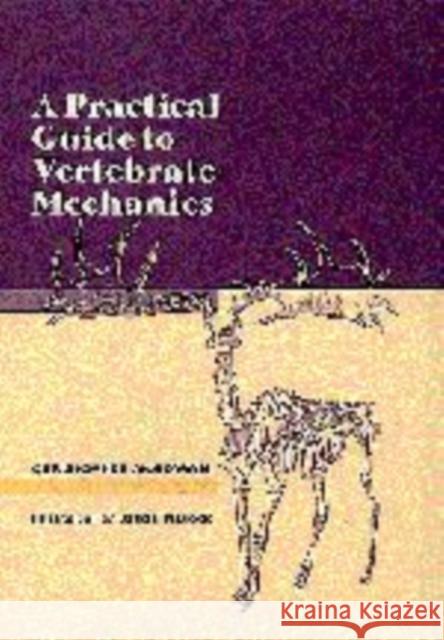A Practical Guide to Vertebrate Mechanics » książka
A Practical Guide to Vertebrate Mechanics
ISBN-13: 9780521571944 / Angielski / Twarda / 1999 / 316 str.
A Practical Guide to Vertebrate Mechanics
ISBN-13: 9780521571944 / Angielski / Twarda / 1999 / 316 str.
(netto: 566,07 VAT: 5%)
Najniższa cena z 30 dni: 587,17
ok. 22 dni roboczych.
Darmowa dostawa!
A thorough understanding of the form, function, and design of animals is essential to any working biologist's knowledge. In the author's view, however, this fast-growing field of study can be made much more exciting and accessible with a hands-on, practical approach. This view is the basis for A Practical Guide to Vertebrate Mechanics. This text can be considered an engineering book for biologists. The emphasis is on vertebrates, and each topic begins with a discussion of the underlying principles, followed immediately by practical experiments and laboratory exercises. The author begins with a refresher on scaling and measurement. This is followed by three chapters on the mechanical properties of materials--investigating elasticity, the strength of materials, and how things break. This leads the discussion to animal materials--bones, joints, muscles--which serve to illustrate principles of structure and load, lubrication, physiology, metabolism, and stamina. Finally, the systems are put in motion, as we discuss terrestrial locomotion, flight, and swimming. What sets this book apart from others on functional anatomy is the emphasis on practical work. Many of the experiments are simple to conduct. Detailed instructions for setting up the experiments are given in an appendix, and sample results are included to guide the student. A Practical Guide to Vertebrate Mechanics will form an important part of undergraduate and beginning graduate courses for zoology, anatomy, biomechanics, and paleontology students. Chris McGowan is Professor in the Department of Zoology at the University of Toronto and Curator in the Department of Palaeobiology at the Royal Ontario Museum. Several of his previous books include, The Raptor and the Lamb: Offense and Defense in the Living World (1997), Make Your Own Dinosaur Out of Chicken Bones: Foolproof Instructions for Budding Palaeontologists (1997), and Diatoms to Dinosaurs (1994).











